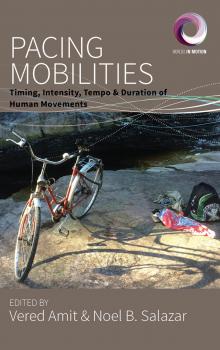Социология
Различные книги в жанре СоциологияLa vida en suspenso
¡Bienvenidos y bienvenidas a la nueva anormalidad! (aunque tememos que no va a gustarles). Nuestros ricos se niegan a pagar un impuesto solidario. Las personas mueren solas en la pandemia. ¿Es imposible la unidad nacional? y en todo caso, ¿para qué la querríamos? Una vez más, ¿qué hacemos con el Conurbano? El Estado descubre millones de personas caídas del mapa.Lo más alto del Poder Judicial muestra inacción e insensibilidad. Qué nos enseña la ciencia. Quién manda y cómo manda en el federalismo. ¿El nuevo cuco de los agronegocios es la soberanía alimentaria? El mundo de las empleadas domésticas deja ver la falta de límites de la miseria humana. Qué diplomacia le conviene a un país modestito como la Argentina. Cuál es el cine del mañana y por qué es necesario inventarnos un relato que nos reconcilie al final de esta aventura postapocalíptica. Este libro comenzó a gestarse la primera jornada de aislamiento social obligatorio, bajo el signo de la urgencia.Cien días después, al momento de su publicación, seguimos a la espera. Los casos de covid-19 continúan aumentando en la Argentina, lenta e inexorablemente, mientras el famoso pico se desplaza hacia un futuro indefinido. Y en aquellas regiones donde el virus parecía controlado, aparecen rebrotes que ponen entre paréntesis los planes de una salida cercana. Vivimos un tiempo absolutamente excepcional.La vida en suspenso reúne 16 escritos urgentes. La mitad de ellos se orientan a comprender esta coyuntura inaudita. La otra mitad propone ideas transformadoras para lo que vendrá. En estas condiciones, cualquier cosa parece posible pero casi nada resulta pensable. ¡Discutamos!
Der Kunde ist Gast
›Der Kunde ist Gast‹ hat sich als angemessene Metapher für eine wünschenswerte Beziehung zwischen Kunde und Buchhändler etabliert. Gast und Gastgeber bewegen sich auf einer gemeinsamen Bühne – gleichberechtigt und respektvoll gegenüber dem jeweils anderen. Für ihre Beziehung gelten Spielregeln, die einen reibungslosen ›Partyverlauf‹ sicherstellen. Die Neuauflage des Buches zeigt eindringlich, wie wichtig der richtige Umgang mit Kunden im Verkaufsraum und am Telefon ist – gerade in Zeiten des automatisierten Internethandels. Das partnerschaftliche Modell ›Der Kunde ist Gast‹ mit seinen unverkrampften Verhaltensformen bleibt weiterhin angemessen und zeitgemäß. Jörg Winter engagiert sich seit 1984 als Unternehmensberater und Trainer für die Buchbranche. Unter der Firmierung ›Impulse zum Erfolg‹ (www.joerg–winter.de) veranstaltet er jedes Jahr zahlreiche Seminare. Im vorliegenden Buch skizziert er praxisnah, wie ungezwungene Gastfreundschaft mit Leben erfüllt werden kann. Maßstab und Ziel bleibt dabei stets die konsequente Kundenorientierung.
Internationaler Buchmarkt
Wer in der Buchbranche und in angrenzenden Bereichen arbeiten möchte, bewegt sich in einem äußerst dynamischen Umfeld. Die beste Grundlage für einen erfolgreichen Umgang mit immer neuen Herausforderungen und stetigem Wandel ist eine solide Informationsbasis verknüpft mit andauernder persönlicher Weiterbildung. Die Reihe BRAMANNBasics buch & medien bietet dafür aktuelles und komprimiertes Wissen. Als Herausgeber fungieren Klaus-Wilhelm Bramann, Verleger für Fachthemen der Medienbranche und Anke Vogel, wissenschaftliche Mitarbeiterin am Gutenberg-Institut für Weltliteratur und schriftorientierte Medien an der Universität Mainz. Bei den Autor*innen handelt es sich um anerkannte Wissenschaftler*innen und herausragende Praktiker*innen, die ihre Erfahrungen aus Forschung, Lehre und Berufspraxis in ihre Darstellungen einfließen lassen. Die deutsch-amerikanische Autorin dieses Bandes, Corinna Norrick-Rühl, ist Juniorprofessorin für Buchwissenschaft in Mainz. Anglophone Buchmärkte stellen einen Schwerpunkt in ihrer Lehr- und Forschungstätigkeit dar. Darüber hinaus ist sie in der internationalen wissenschaftlichen Community im Bereich Book Studies hervorragend vernetzt. Das Wissen um die Zusammenhänge im internationalen Buchgeschäft gewinnt in einer zunehmend globalisierten Branche immer weiter an Bedeutung. Nicht nur in ökonomischer Perspektive gilt es neue Chancen und Risiken gegeneinander abzuwägen, sondern auch die kulturellen Auswirkungen eines transnationalen Buchmarktes zu hinterfragen. Der vorliegende Band liefert zahlreiche Zahlen und Fakten, spricht aber auch grundsätzliche Probleme im internationalen Buchmarkt sowie buchpolitische Fragestellungen an.
Wealth of Nations
The foundation for all modern economic thought and political economy, «The Wealth of Nations» is the magnum opus of Scottish economist Adam Smith, who introduces the world to the very idea of economics and capitalism in the modern sense of the words. Smith details his argument in the following five books:
Introduction and plan of the work
Part 1 Of the Causes of Improvement in the productive Powers of Labour, and of the Order according to which its Produce is naturally distributed among the different Ranks of the People
Chapter 1 Of the Division of Labour Chapter 2 Of the Principle which gives Occasion to the Division of Labour Chapter 3 That the Division of Labour is limited by the Extent of the Market Chapter 4 Of the Origin and Use of Money Chapter 5 Of the real and nominal Price of Commodities, or of their Price in Labour, and their Price in Money Chapter 6 Of the component Parts of the Price of Commodities Chapter 7 Of the natural and market Price of Commodities Chapter 8 Of the Wages of Labour Chapter 9 Of the Profits of Stock Chapter 10 Of Wages and Profit in the different Employments of Labour and Stock Chapter 11 Of the Rent of Land 1. First Period 2. Second Period 3. Third Period 4. First Sort 5. Second Sort 6. Third Sort 7. Conclusion of the chapter
Part 2 Of the Nature, Accumulation, and Employment of Stock
Chapter 1 Of the Division of Stock Chapter 2 Of Money considered as a particular Branch of the general Stock of the Society, or of the Experience of maintaining the National Capital Chapter 3 Of the Accumulation of Capital, or of productive and unproductive Labour Chapter 4 Of Stock lent at Interest Chapter 5 Of the different Employment of Capitals
Part 3 Of the different Progress of Opulence in different Nations
Chapter 1 Of the Natural Progress of Opulence Chapter 2 Of the Discouragement of Agriculture in the ancient State of Europe after the Fall of the Roman Empire Chapter 3 Of the Rise and Progress of Cities and Towns, after the Fall of the Roman Empire Chapter 4 How the Commerce of the Towns contributed to the Improvement of the Country
Part 4 Of Systems of political Economy
Chapter 1 Of the Principle of the commercial, or mercantile System Chapter 2 Of Restraints upon the Importation from foreign Countries of such Goods as can be produced at Home Chapter 3 Of the extraordinary Restraints upon the Importation of Goods of almost all Kinds, from those Countries with which the Balance is supposed to be disadvantageous 1. Of the Unreasonableness of those Restraints even upon the Principles of the Commercial System 2. Of the Unreasonableness of those extraordinary Restraints upon other Principles Chapter 4 Of Drawbacks Chapter 5 Of Bounties Chapter 6 Of Treaties of Commerce Chapter 7 Of Colonies 1. Of the Motives for establishing new Colonies 2. Causes of Prosperity of New Colonies 3. Of the Advantages which Europe has derived from the Discovery of America, and from that of a Passage to the East Indies by the Cape of Good Hope Chapter 8 Conclusion of the Mercantile System Chapter 9 Of the Agricultural Systems, or of those Systems of Political Economy, which represent the Produce of Land, as either the sole or the principal Source of the Revenue and Wealth of every Country
Part 5 Of the Revenue of the Sovereign or Commonwealth Chapter 1 Of the Expences of the Sovereign or Commonwealth 1. Of the Expense of Defence 2. Of the Expense of Justice 3. Of the Expense of Public Works and Public Institutions 4. Of the Expense of Supporting the Dignity of the Sovereign 5. Conclusion Chapter 2 Of the Sources of the general or public Revenue of the Society 1. Of the Funds or Sources of Revenue which may peculiarly belong to the Sovereign or Commonwealth 2. Of Taxes Chapter 3 Of public Debts AUDIO BOOK
Mujeres en revolución
Estamos atravesando una nueva y poderosa oleada feminista internacional… estas luchas se desarrollan como respuesta frente a un ataque capitalista también global que intenta recortar nuestros derechos de género, ofensiva que en nuestro país encarna el gobierno derechista de Mauricio Macri junto a sus socios y cómplices. Sin embargo, en esa defensa, masiva, apasionada y cada vez más consciente, las mujeres estamos poniendo en cuestión a todas las instituciones y al propio sistema dominante: Gobierno, Parlamento, Justicia, Policía, Iglesia, Estado…Éste es, por lo tanto, un texto-herramienta, un aporte militante y abierto que ponemos a disposición de todo el activismo feminista para fortalecer la pelea por todos nuestros derechos y contra este sistema capitalista y patriarcal, que es el padre de todas las violencias.
Feminism in debate, reform or revolution?
In this collective work we return to old controversies that the feminist tide reopens, as well as new and complex questions that reality raises. Among those controversies that are becoming relevant today, we address here the patriarchy-state relationship, the border between the different reformist currents and revolutionary feminism, as well as the construction of the latter. In turn, regarding the new, we include abortion as a right now in dispute, the religious-political fundamentalist crusade, the validity or not of punitivism in the face of male violence; the dilemmas of surrogacy, domestic work, and prostitution or sex work; identity and intersectionality policies and the challenges of the LGBTI + movement
Iglesia y Estado, asuntos separados
Si en 2017 publicamos Mujeres en revolución sobre la cuarta ola feminista mundial, y en 2018 La rebelión de las disidencias sobre dicho fenómeno, nos debíamos iniciar este año con un texto sobre la Iglesia Católica, su relación con el Estado y sus aliados del evangelismo. En este texto analizamos los vínculos Iglesia- género e Iglesia -poder ayer y hoy, la estrategia de la paz social y sus defensores, la pedofilia clerical, los privilegios de la Curia, el rol social de la religión, voces de la tradición marxista y nuestra trayectoria y propuestas laicistas. Esperamos que resulte de interés para nuestro público lector, que permita reflexionar, abrir o reabrir debates y sacar conclusiones para fortalecer la lucha por el objetivo que compartimos: avanzar hacia una Argentina laica, en la perspectiva de transformaciones sociales de fondo. Una lucha política por el poder, es necesario unirnos y organizarnos en una herramienta política feminista revolucionaria, laica, antimperialista, anticapitalista e internacionalista para dar esa batalla de fondo
Rompiendo el código
El cine clásico ha dado innumerables personajes que aún perduran en la memoria colectiva. Muchos de ellos hicieron míticas las películas de un Hollywood que constituía una fábrica de sueños. Sin embargo, la sexualidad que algunos encarnaban se topó con la censura que de forma férrea representaba el Código Hays desde 1934. El propósito de Rompiendo el Código. Personajes y sexualidades latentes en el Hollywood clásico es la reflexión sobre la representación de la homosexualidad, tanto masculina como femenina, en el cine norteamericano, concretamente hasta la disolución del citado sistema de censura en 1967. Para ello, se aborda la construcción de diecisiete personajes de filmes emblemáticos como Rebeca (Alfred Hitchcock, 1940), El halcón maltés (John Huston, 1941), Johnny Guitar (Nicholas Ray, 1954), La gata sobre el tejado de zinc (Richard Brooks, 1958), Espartaco (Stanley Kubrick, 1960) o La calumnia (William Wyler, 1961), entre otros, que siguen cautivando a los espectadores. Estos seres de ficción, que son estudiados por diecisiete investigadores del ámbito académico universitario, responden a unos prototipos que experimentaron una evolución conforme el Código se fue debilitando. A través de ellos, se pretende ofrecer otra mirada a unos títulos que solo pudieron sugerir lo que realmente querían mostrar.









